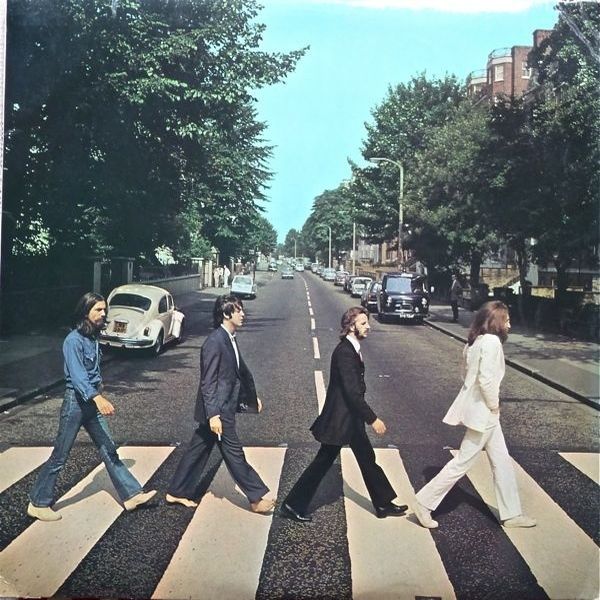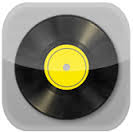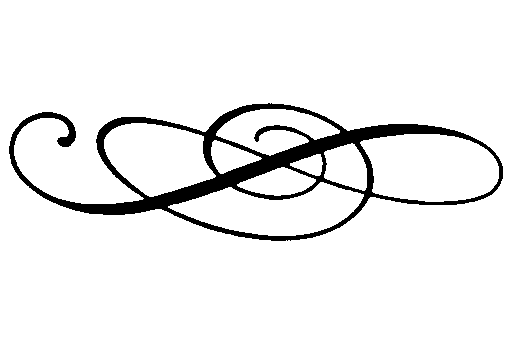

 The Beatles
The Beatles | Release date | Label | Producer | Genre | Length | More info |
| 1969.09.26 | Apple/Capitol | George Martin | Classic Pop Rock | 47:19 |  
 |
Such a generous musical testament for so many unworthy beneficiaries.
Background
A detailed review of Abbey Road from a general chronological perspective has already been written by me here, so, for the "Important Album Series", here is a somewhat different perspective.
While speculating on all the possible and probable causes of the Beatles' split-up in 1969, we sometimes forget how much the overall musical world in 1969 had changed even compared to 1967, let alone the first half of the decade. At the top spot of the UK charts, for instance, Abbey Road was preceded by Jethro Tull's Stand Up and Blind Faith's self-titled, then succeeded by the Stones' Let It Bleed and by Led Zeppelin II - still spending a respectable 17 weeks at the top, of course, but a far cry from 1963-66, when the Beatles' only truly strong contestant for the top position was the Sound Of Music soundtrack (oh boy). In fact, ever since helping open the floodgates with Sgt. Pepper, throughout 1968-69 the Beatles were legendary cult figures, elder statesmen, counted in the top ranks, but no longer "The Top Rank" personified. Hendrix, Cream, the emerging heavy and progressive players, the roots-rockers, the soul/funk scene - so much competition, not to mention that most of these guys played live, which gave them both a chance to constantly hone and perfect technique and to get more visibility. How could the bearded Fab Four fight this deluge with anything other than great songwriting? And sooner or later, as style, theatricality, and visual effects took over, not even great songwriting would help.
Had the other three guys relented in spirit and let Paul McCartney completely take over the musical directorship of the band, as he tried to do to various degrees of efficiency from 1967 to the disastrous Let It Be sessions, he may have somehow guided the band through the Seventies - if you look at the solo careers of all four, McCartney seems to be the only one who actually gave a damn about changing musical trends and fashions, from glam to disco to New Wave. But that would have turned the Beatles from leaders into followers (just look what happened to the Stones), and for a band that spent at least the first five years of its recording career strictly in the lead, that would have been humiliating. Maybe the biggest general strength of Abbey Road is that the record, although clearly not without influences of its own, imitates no one - neither intentionally, as much of the White Album did, nor subconsciously. Recorded in the context of one of the best years in popular music, it simply reflects The Beatles as they were in that summer of '69, which is, of course, precisely why it still sounds so timeless after all these years. Could this be repeated one year later? Two years later? Three? I seriously doubt it.
Some basic factsAll the actual details of the recording process can be easily looked up in a million informative sources.
For the
defense
(1) The opening - the first three seconds of ʻCome Togetherʼ. I never hear no "shoot!" in Lennon's voice; all I hear is a "shh!", which, when combined with the overloud McCartney bass, in those three seconds creates a mystery that will hang over the entire record. Remember how most Beatles records tend to start out with a bang? This is the only one that starts out with a deep hum and a whisper, as if somebody is enigmatically letting us in on some deep secret. So what if the lyrics make no sense? Neither do a lot of "genuine" deep secrets.
(2) George Harrison's guitar solo on ʻSomethingʼ - it's all great, but none of it greater than the two triple bends at 2:03 into the song which then lead into the final resolution. George was quite the master of the expressive guitar solo in the band's later years, and although he usually tends to make his solos closely follow the vocal melody, including ʻSomethingʼ, these bends are just a genius, unpredictable counterpart to the "I don't want to leave her now" bridge. A couple moments of doubt, indecision, and just yer basic inner torment before the celestial resolution. Chills!
(3) At 3:03 in everybody's unfavorite novelty number ʻMaxwell's Silver Hammerʼ, when you aren't expecting much of anything except for the song to just wind down, and then that Moog solo jumps out at you. If you listen closely, the synthesizer is already there well before, but they really bring it out Keith Emerson-style for the last several bars, and it's hilarious and so totally psychedelic at the same time - maybe a brief glimpse of that corner of Heaven to which "Maxwell" allegedly sent so many innocent souls. One might dismiss the song as stupid, if one so wishes, but lack of creativity? Nosiree. And that's not even mentioning Mal Evans' "anvil" and stuff.
(4) ʻOh! Darlingʼ has never been a personal favorite of mine because, to a very young me, it always contained the "scariest" moment of the album - yes, scarier than ʻI Want You!ʼ - of course, the bit at 1:08 when Paul enters with his throat-tearing "When you told me..." (actually, being followed up by the falsetto whooh! the second time around makes it less scary, but that's only the second time around). Silly, but impressive. Note how this is one of his very few Beatle-era songs that he never did live in concert? He probably knows that everything depends on how well you can pull off that screamy bridge section, and that it really doesn't work unless you go for total self-destruction, which is not going to happen in the middle of a live show. It's... well... evil out there. Like Howlin' Wolf level evil or something. True story.
(5) ʻOctopus's Gardenʼ - nice kiddie tune from Ringo, pushed over into the realm of greatness by George's lead guitar. Nowhere more so than on the closing licks, mind you, when Ringo keeps repeating "in an Octopus's garden with you" three times, and George replies with a little phrase each time. First time: a little threatening. Second time: counterpoint, a little hysterical. Third time: conclusive, bringing it down and out with a flourish. Diverse, elegant, and bringing at least a couple extra dimensions into the story. Without George, you'd never really think the song was about the tragic impossibility of finding paradise. Hell, Ringo would probably never think that. Probably still doesn't. Good for him.
(6) Greatest moment of ʻI Want You (She's So Heavy)ʼ comes precisely at 7:44 into the song, and I'm not joking: for all the cool moments in that song (and you could find many), the abrupt termination, without a fade-out or a proper conclusion, is really the thing that draws your attention. "What happened? Was there a power cut? Is something wrong with my record player?" Then you have to replay the ending once more, just to make sure, and hear those winter winds and heavy snowman footfalls all over again. Quite a clever ending for arguably the most nightmarish musical piece in Beatles history (ʻHelter Skelterʼ is more "hellish" technically, but feels more theatrical, whereas ʻI Want Youʼ quite clearly predates the "bare soul" confessions of John Lennon/Plastic Ono Band).
(7) The soft-'n'-sunny acoustic intro to ʻHere Comes The Sunʼ, but only in the context of (6). This is the one and only advantage CDs and MP3s have over the old LP format - by the time you took the record off and put it back on, the shock of ʻI Want Youʼ might have already worn off, but when you don't have to experience any pauses, the swift transition from the nightmare into the sunlight of Harrison's acoustic guitar is one of the most terrific musical mood-swingers I can recall.
(8) At the end of ʻYou Never Give Me Your Moneyʼ, those few seconds when the melody fades away and the only thing left are the chimes, and then the chimes are joined by the cicadas, and then only the cicadas remain and they evolve into ʻSun Kingʼ. I could easily trade quite a few of my ambient albums for those few seconds - it's amazing how little it really takes to set up the atmosphere of a totally otherworldly place.
(9) At 0:35 into ʻCarry That Weightʼ - it's not enough that, out of nowhere, they decided to re-weave the ʻYou Never Give Me Your Moneyʼ theme into the proceedings, but it's totally awesome how the brass instrumentation of the first two lines is counteracted by the sharpness, almost bitter viciousness of the lonesome lead guitar. Frankly, even though the entire medley is cool, it falls rather short on striking individual moments, but with this single power line from George, everything is redeemed.
(10) Finally, no Top 10 list like this could do without a mention of the Ringo drum solo. Not just because it is the only Ringo drum solo in existence (I am not even sure it can qualify properly as a "solo"; more like an extended drum intro, no?), but because it is such an excellent showcase of "creative drumming". Never once getting off rhythm, perfectly integrating all those breaks and fills, driving us towards the beginning of the jam with such ferocious precision. 14 seconds of drum glory that might be more memorable, as an "event", than the entire career of a Bill Bruford or a Neil Peart (not to denigrate the other two, but I really don't recall any comparable powerful minimalistic statements from them).
Plenty of honorable mentions as well, and excuses for a few songs that did not make the cut, not because they suck, but because they flow too smoothly and evenly to make a huge difference at one or more turning points (ʻBecauseʼ is a good example - love it as a whole without any outstanding edges).
For the prosecution
Supposedly, to balance things out, we'd have to have a "Top 10" or at least "Top 3" "Worst Moments Of Abbey Road", but that's a far more daunting task. Let's see now, here's a couple I might think of:
(1) I've never liked the way McCartney draws out the final "I'll never do you no haaaaaarm!" in ʻOh! Darlingʼ. Too throaty or something. Not an ideal conclusion.
(2) The "yeah yeah yeah"s in ʻPolythene Pamʼ. Don't you find them a bit of an easy cop-out? I kinda thought the age of "yeah yeah yeah"'s had long since passed.
(3) I'm lost here.
Conclusion
| Melody |
Voice | Mood | Production | Innovation/Influence | Where it belongs | RYM preference | |
 |
 |
 |
 |
 |
 |
#7 (Feb 14, 2016) |

| Previous entry | Main page | Next entry |